Kia ora koutou and welcome to our quarterly update
 We were thrilled to have a fantastic turnout for our National Strategy for Financial Capability Partners Conference last month, with more than 270 partners joining us for what was an invigorating and thought-provoking couple of days. A very special thank you to our excellent speakers and panellists who took time out of their busy schedules to join us.
We were thrilled to have a fantastic turnout for our National Strategy for Financial Capability Partners Conference last month, with more than 270 partners joining us for what was an invigorating and thought-provoking couple of days. A very special thank you to our excellent speakers and panellists who took time out of their busy schedules to join us.
The conference was a fitting culmination to the activity that’s taken place over the past three years of the National Strategy and has laid the foundations for the development of the next one. Together we have made a real impact and we’ll be sharing a summary of the highlights of what’s been achieved and a year in review when we release the National Strategy annual report in July.
We also held the Super Summit in Wellington in March, which was a day of thoughtful and rigorous debate highlighting the complexities and challenges around New Zealand’s superannuation system. You can read a report summarising the discussions of the day here – we intend for this to assist thinking in coming years, and to reinforce the need for cross-party thinking.
Our second Money Month this August is fast approaching, and new resources for 2024 are now available. We will be holding an interactive workshop webinar on 12 June on how to use the resources and get the most out of Money Month – if you’re interested in attending sign up here. Applications are open for the Money Month community fund, which we are running again this year with a boosted amount of $10,000 available to support community organisations running initiatives or events. Applications close 10 June so make sure to get your event ideas in soon.
As we approach the end of the financial year on 30 June, I am really pleased with the progress we’ve made achieving the objectives set in our annual Statement of Performance Expectations. Our next SPE will be published at the end of this month outlining our 12-month work plan.
Over the next couple of months we will also be putting our heads together to create the next National Strategy for 2024-2027, which we aim to launch in August. Thank you to all of you who shared your ideas at the conference - the opportunities, challenges and solutions discussed will feed into the goals and workplan for the next three years.
With a new plan comes a refreshed focus, and I am looking forward to seeing what we can achieve as a sector, as we continue to work together and leverage our collective power.
Jane
People News
Director Policy and Research

National Strategy for Financial Capability
Over 120 organisations come together at National Strategy Partners Conference in May

The National Strategy for Financial Capability conference took place 8-9 May in Auckland, with over 270 individuals and 120 organisations in attendance. Attendees included financial mentors, financial advisers, community organisations, educators, government agencies and those working in the banking, insurance and fintech industries.
Minister of Commerce and Consumer Affairs Hon Andrew Bayly joined an engaged audience on day one to share the government’s priorities for supporting better financial wellbeing outcomes, followed by a range of sessions including how banks are nudging better outcomes, what’s happening in the community and what’s next for the National Strategy.
Day two kicked off with three shifting the dial breakfasts, where attendees reflected on how to lift financial wellbeing for Māori, Pacific Peoples and women. Day two sessions explored money mindsets, resilience, and financial education and the future.
If you missed the conference or want to share your favourite session with a colleague, the recordings are now available on our website.
View the photos from the conference here.


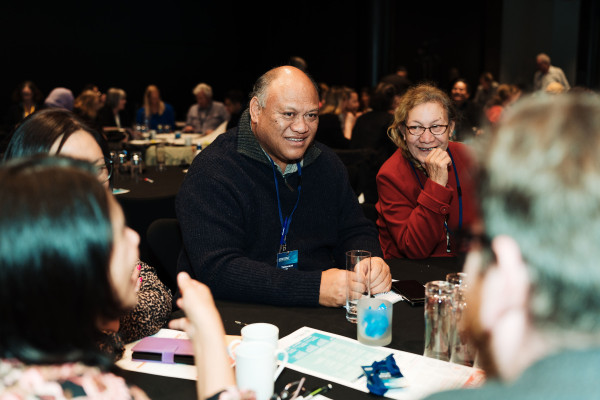

What is the future of NZ Super in New Zealand?
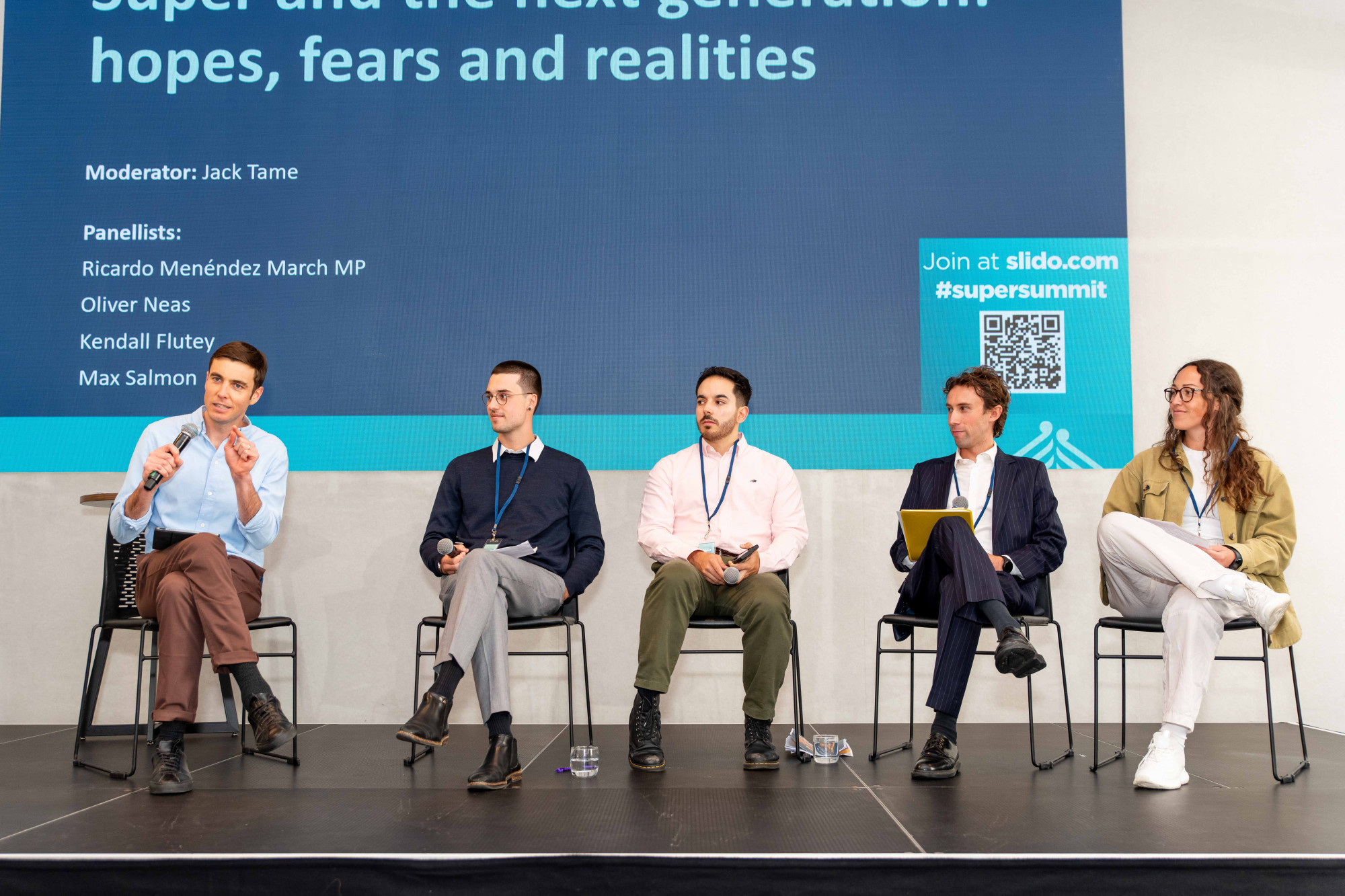
We hosted the Super Summit in Wellington on March 21 with an excellent range of panellists and moderators who provided a thoughtful and respectful contest of ideas around NZ Super. The summit attracted around 90 attendees including academics, officials, media and community representatives.
We were delighted that Hon Louise Upston was able to take time out of her busy schedule to address the Summit. A range of stories were published in various media in the lead up to and post the Summit, and we have now published a post-event report summarising the discussions of the day.
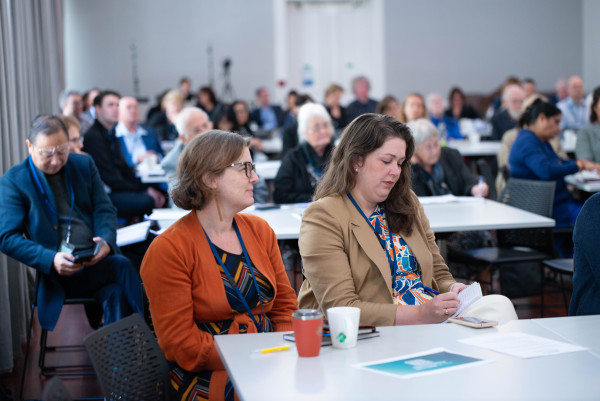
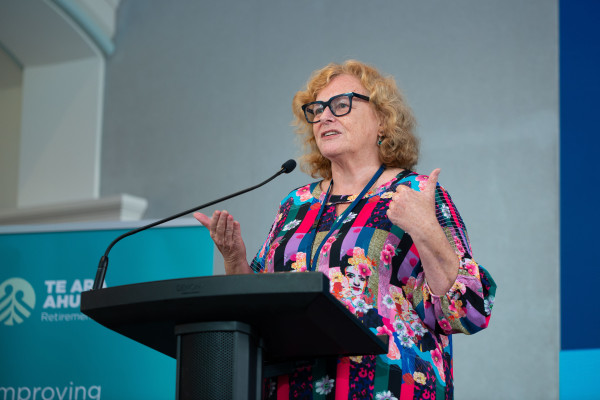
New digital hub launched to facilitate knowledge sharing across the sector
As requested by many National Strategy partners, we are excited to have launched a new financial capability shared resource hub this quarter - to support connection and resource sharing among those working to lift financial wellbeing.
Thank you to all of those who have contributed resources so far.
What is on the shared hub?
- Financial education resources
- Research and data insights
- Evaluation and impact
You can also connect with fellow hub members through the directory and Teams channel.
For any questions, resources to suggest adding or issues getting into the hub, please reach out to Natalie.
How can we collectively improve financial capability for Māori?
Since December 2023, Te Ara Ahunga Ora Retirement Commission has hosted four wānanga for Māori partners, with over 60 different organisations represented across the motu from Kaikohe and Kaitaia to Christchurch. This was followed by a breakfast session at the National Strategy conference. These events connected Māori working to improve financial capability outcomes for Māori, to discuss opportunities and issues, and to create a shared roadmap across the sector.
We gained valuable insights into the current initiatives, challenges and ideas, from within Māori financial capability mahi, to align and strengthen our various work strands. As agreed at the sessions, we’ll now synthesize this information and draft a Māori financial capability strategy for further discussion. The next phase involves collectively agreeing on priorities for an action plan and goals for the draft strategy. In time we want this collaborative work, shaped with key input from the Māori financial capability sector, to benefit Māori mahi across the board.
This strategy will also be an important plank of the over-arching National Strategy.
For any pātai, please contact Donna.
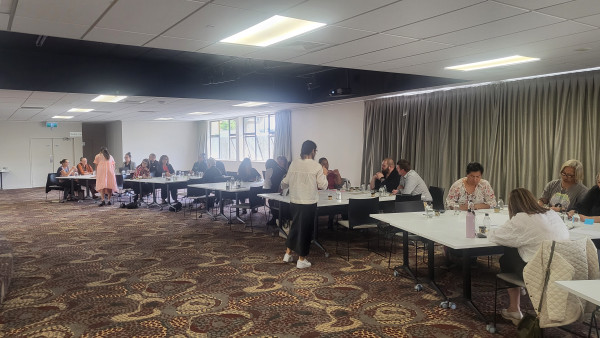

Sorted.org.nz
Sorted brand awareness campaign live this quarter
Our new Sorted brand campaign went live across New Zealand in early April, with the key message being ‘Sorted, your first move for all things money’.
We have produced three hero videos, ten static creative for our out-of-home, social and digital channels, and one radio ad. During the 2-3 weeks we were in market during April we saw nearly 700,000 impressions – including 315k from outdoor, 162k from videos watched, and 205k from audio.
Watch the campaign hero videos
Get ready for Sorted Money Month
We are counting down to Sorted Money Month and resources are now available for your use! We have released a partner toolkit with an overview of this year’s Money Month, including information on how to get involved and what assets are available. Sign up to our interactive workshop webinar on Wednesday 12 June to learn how you can use the resources to bring Money Month to life for your customers or community.
If you want to bring the Money Month spirit to your workplace this year, visit our workplaces page for ideas on how your team can get involved in the kaupapa.
$10,000 available to boost Money Month initiatives
If you’re a not-for-profit or community organisation thinking about running an event or initiative for Money Month, there may be financial support available for you! Apply for a share of $10,000 to support your community. $5,000 of the fund this year is earmarked for initiatives targeting women thanks to our friends at Empower Women, formerly Women in Super. Applications close 10 June.
Running an event or webinar this Money Month?
Tell us so we can promote it! An events calendar will be up on sorted.org.nz to promote events and initiatives taking place during Money Month to New Zealanders.
Sorted in Schools
Bringing teachers together to get financial education in schools
To support the teaching of Te whai hua – kia ora, Sorted in Schools, we are focusing on bringing together regional networks of teachers with a passion for financial education. Our learning team has also begun discussions to develop a learning framework to guide teachers to identify stages of learning and build financial education into their programmes. This project will continue into the coming financial year.
Our English medium education tax resources, in collaboration with Inland Revenue, have been released and are available on the Sorted in Schools website. Māori medium resources are also in the making and will be released soon.
Research
New data highlights 36% gender gap on KiwiSaver contributions
New research released in April revealed a 36% gap between the amount men and women are putting into KiwiSaver each year. Te Ara Ahunga Ora commissioned the New Zealand Policy Research Institute at AUT to carry out research using newly available information in Stats NZ’s Integrated Data Infrastructure (IDI), which allows KiwiSaver contribution rates to be investigated from April 2019.
The research indicates that this 36% gap is primarily caused by the gender pay gap, rather than a difference in contribution rates, as women and men on average contribute the same percentage of their salaries to KiwiSaver.
Latest data on KiwiSaver reveals no improvement to the gender savings gap on balances
This year’s research delving into KiwiSaver demographics has shown no closing of the gender savings gap on average balances – remaining fixed at 25%.
The findings show the average KiwiSaver balance is $31,823. This is $4,444 higher than last year (an increase of 16.2%) and likely reflects the strong recovery the financial market experienced over 2023. There continues to be a notable gap between males ($36,605) and females ($29,291). The average balance for a male is 25% higher than the average balance for a female, a gap of $7,314.
Retirement villages
Progress on the Review of the Retirement Villages Act
The Ministry of Housing and Urban Development is currently analysing submissions on the Review of the Retirement Villages Act 2003 and developing policy proposals. We continue to support this review.
Key dates
1-31 August 2024
Money Month
August 2024
Launch of the 2024-2027 National Strategy for Financial Capability